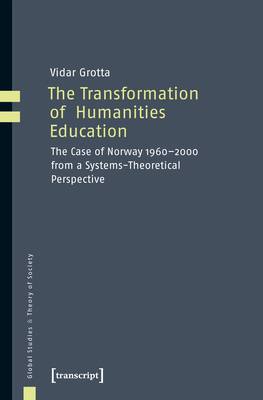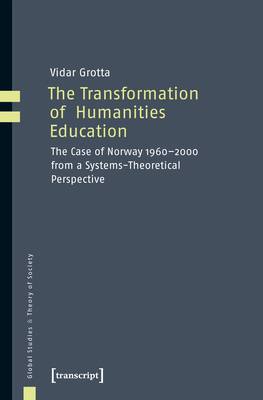
- Afhalen na 1 uur in een winkel met voorraad
- Gratis thuislevering in België vanaf € 30
- Ruim aanbod met 7 miljoen producten
- Afhalen na 1 uur in een winkel met voorraad
- Gratis thuislevering in België vanaf € 30
- Ruim aanbod met 7 miljoen producten
Zoeken
The Transformation of Humanities Education
The Case of Norway 1960-2000 from a Systems-Theoretical Perspective
Vidar Grøtta
€ 93,95
+ 187 punten
Omschrijving
This first comprehensive study of Norwegian humanities education employs systems theory to analyze its transformation from a form of teacher training to its modern status as research-oriented generalist education. Using historical documents and statistical analyses, Vidar Grotta shows that the expansion of the postwar research system in Norway led to an increase in admissions to humanities education in the 1960s and an ensuing research drift in humanities curricula. Interacting with certain political dynamics and the knowledge economy that has emerged since the 1970s, this research drift resulted in a shift in humanists' career patterns and a transformation of the societal functions of the humanities.
Specificaties
Betrokkenen
- Auteur(s):
- Uitgeverij:
Inhoud
- Aantal bladzijden:
- 430
- Taal:
- Engels
- Reeks:
Eigenschappen
- Productcode (EAN):
- 9783837643077
- Verschijningsdatum:
- 17/09/2019
- Uitvoering:
- Paperback
- Formaat:
- Trade paperback (VS)
- Afmetingen:
- 147 mm x 224 mm
- Gewicht:
- 884 g

Alleen bij Standaard Boekhandel
+ 187 punten op je klantenkaart van Standaard Boekhandel
Beoordelingen
We publiceren alleen reviews die voldoen aan de voorwaarden voor reviews. Bekijk onze voorwaarden voor reviews.








